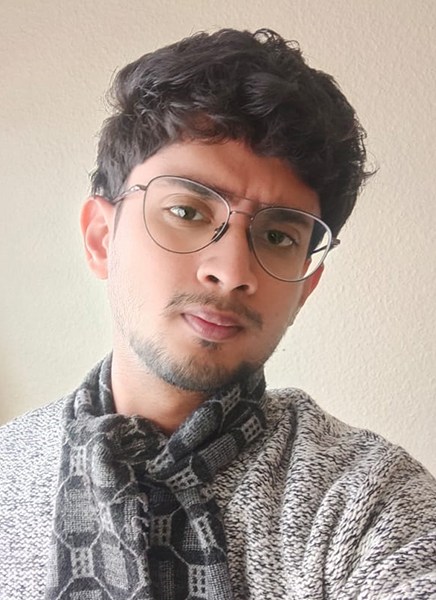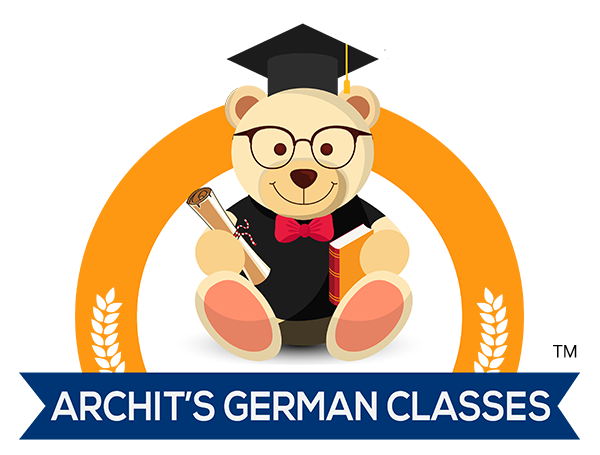German

Archit Vaidya
Archit Vaidya is the founder & the owner of the institute. Since childhood, he had the curiosity to study about different cultures. He is always keen to keep a tab of different countries around the globe.
Sanskrit language played a pivotal role in understanding the grammatical complexities of German language. The enriching experience of learning German language from Goethe institute was a milestone but "Travel" is the pinnacle of the language learning process.
Travelling to Germany & other European countries served the best opportunity to immerse in the culture. He highly rates the importance of host family experience in the language learning process.
He was focussed on developing his strengths since teaching came innately. He likes to conduct a structured execution of the course by emphasizing on grammar as it is the logic of speech. Language learning is a life long process. His humble personality aids in rendering the bespoke service.

German is one of the prevalent international languages learnt extensively throughout the world. It is the second most spoken language in Europe.
Language Proficiency
- A1 (Beginner): Basic German where one can use everyday expressions, introduce oneself & respond.
- A2 (Elementary): One can make oneself understood in routine situations.
- B1 (Intermediate): One can coherently express on common topics along with areas of personal interest.
- B2 (Advanced): One shall not only be able to understand complexity of the language but also be able to converse effectively with native speakers.
Exams
We prepare our candidates for the Goethe Institute exam which is universally recognized. The Zertifikat Deutsch (ZD) is an internationally recognized exam of German language ability.
The Zertifikat Deutsch is the result of a joint collaboration between the Goethe Institute, the Österreichisches Sprachdiplom (ÖSD), the Schweizer Erziehungsdirektorenkonferenz(EDK) and WBT Weiterbildungs-Testsysteme GmbH, later renamed telc GmbH (i.e.The European Language Certificates).
Earlier, there were age barriers to appear for the above stated exam. The candidate had to have completed 16 years of age. Now, another dimension has been introduced tailored to adolescent students (10 - 16 years of age) know as "Fit in Deutsch."
Exams are conducted all year round at Kala Ghoda. We regularly update ourselves not only with exam dates but also with exam pattern. All the required exam information (dates & fees) is displayed on the Goethe Institute website. We guide our students through the exam procedure.
Conclusion
We have no age barrier for the course. One can learn the language as a hobby. Let's not keep our eyes only on the end goal which is clearing the exam! It’s equally important to enjoy the language learning process as well which requires a lot of patience. You never know, you might find your passion in learning foreign language & make a career out of it!
Interesting facts about German language
a) German is the most common language in the European Union.
It is not surprising that it is so common, given that it is the only official language in three countries (Germany, Austria and Liechtenstein) and ranks as an official language in another three (Switzerland, Luxembourg and Belgium).
German also ranks highly as a national minority language in yet another four countries (Poland, Denmark, Italy and Hungary).
b) Germany has its own letter called the sharp "S"
While German shares mostly the same alphabet as English, it does have a special letter: "ß". This letter is known as the scharfes “s” (sharp “s”). It looks almost like a capital B, but it is definitely not. It is actually a short-form for the consonant blend “sz” known in German as Eszett. Interesting to note—it was 2017 before this unique letter ever got a capitalized version, ẞ.
c) German writing got a major overhaul in 1998 & again in 2006!
In German, this overhaul is known as neue Rechtschreibung (new correct writing). The main goal of the overhaul was to standardize spelling and punctuation across all German-speaking countries.
d) German time is always looking 30 Minutes Ahead.
The half-hour mark in German refers to the next hour coming up, not the previous one as is the case in British English. For example, halb neun is 8:30, not 9:30. You take it literally as “half nine” meaning 30 minutes before 9:00. This is quite different than “half nine” in British English, which would be 9:30, or the similar “half past nine” in American English.
So when you use halb referring to time in German, you have to think of the hour coming up, not the one that just passed.
